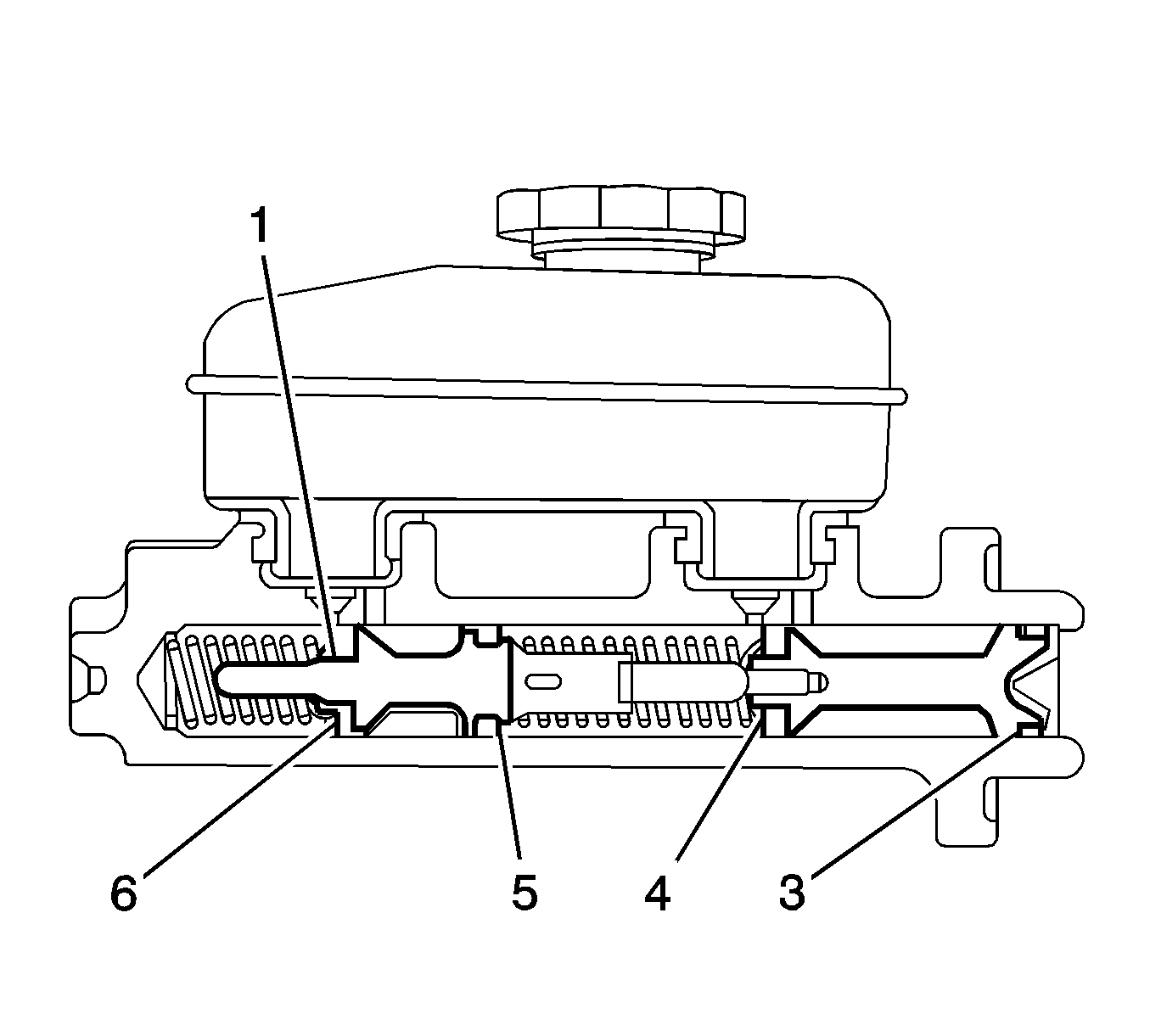For 1990-2009 cars only
Warning: Refer to Brake Fluid Irritant Warning in the Preface section.
Caution: Refer to Brake Fluid Effects on Paint and Electrical Components Caution in the Preface section.
Disassembly Procedure
- Remove the brake master cylinder from the vehicle. Refer to Master Cylinder Replacement.
- Secure the mounting flange of the brake master cylinder in a bench vise so that the rear of the primary piston is accessible.
- Clean the outside of the master cylinder reservoir on and around the reservoir cap prior to removing the cap and diaphragm.
- Remove the master cylinder reservoir from the master cylinder. Refer to Master Cylinder Reservoir Replacement.
- Remove the reservoir cap and diaphragm from the reservoir.
- Inspect the reservoir cap and diaphragm for the following conditions. If any of these conditions are present, replace the affected components.
- Using a smooth, round-ended tool, depress the primary piston (2) and remove the piston retainer.
- Remove the primary piston assembly from the cylinder bore.
- Plug the cylinder inlet ports and the rear outlet port. Apply low pressure, non-lubricated, filtered air into the front outlet port, in order then remove the secondary piston (1) with the primary (6) and secondary (5) seals, and the return spring.
- Discard the primary piston assembly, the piston retainer, and the seals and seal retainer from the secondary piston.

| • | Cuts or cracks |
| • | Nicks or deformation |
Assembly Procedure
- Clean the interior and exterior of the master cylinder, the secondary piston (1), and the return spring in denatured alcohol, or equivalent.
- Inspect the master cylinder bore, inlet and outlet ports, the secondary piston (1), and the return spring for cracks, scoring, pitting, and/or corrosion. Replace the master cylinder if any of these conditions exist.
- Dry the master cylinder and the individual components with non-lubricated, filtered air.
- Lubricate the master cylinder bore, the secondary piston (1), the return spring, and all of the individual overhaul components with new brake fluid from a clean, sealed brake fluid container.
- Assemble the lubricated, new primary seal (6) and retainer, and new secondary seal (5) onto the secondary piston.
- Install the lubricated return spring and secondary piston assembly (1) into the cylinder bore.
- Install the lubricated, new primary piston assembly (2) into the cylinder bore.
- Using a smooth, round-ended tool, depress the primary piston (2) and install the new piston retainer.
- Install the master cylinder reservoir to the master cylinder. Refer to Master Cylinder Reservoir Replacement.
- Install the reservoir cap and diaphragm to the reservoir.
- Install the master cylinder to the vehicle. Refer to Master Cylinder Replacement.

Note: Do not use abrasives to clean the brake master cylinder bore.
Note: Use SGM P/N 93730597 brake fluid, for VIN LSGDE53A88H052546 and after or SGM P/N 93735280 or equivalent DOT-4.04, for VIN LSGDE53A99H052546, brake fluid from a clean, sealed brake fluid container only.
